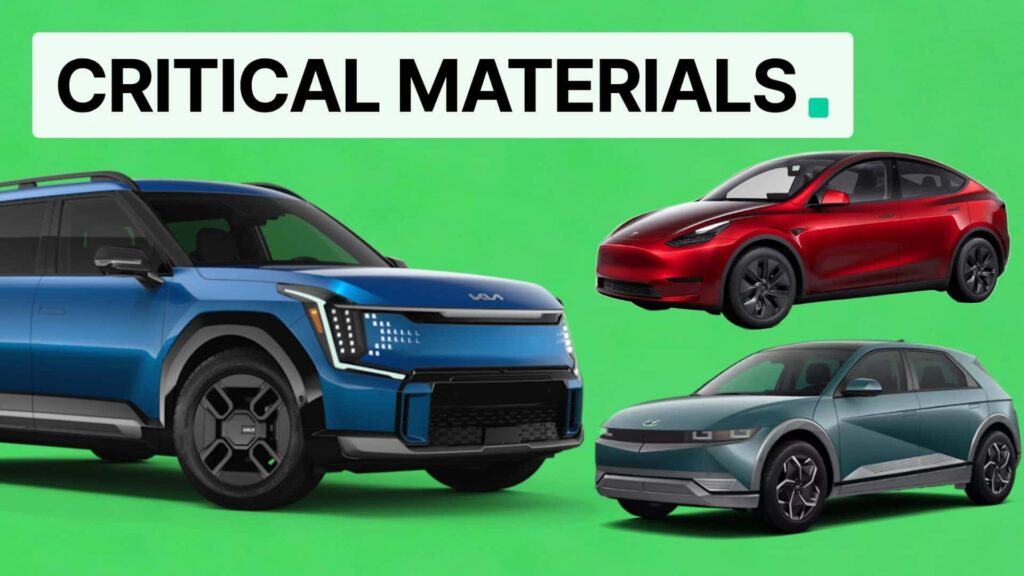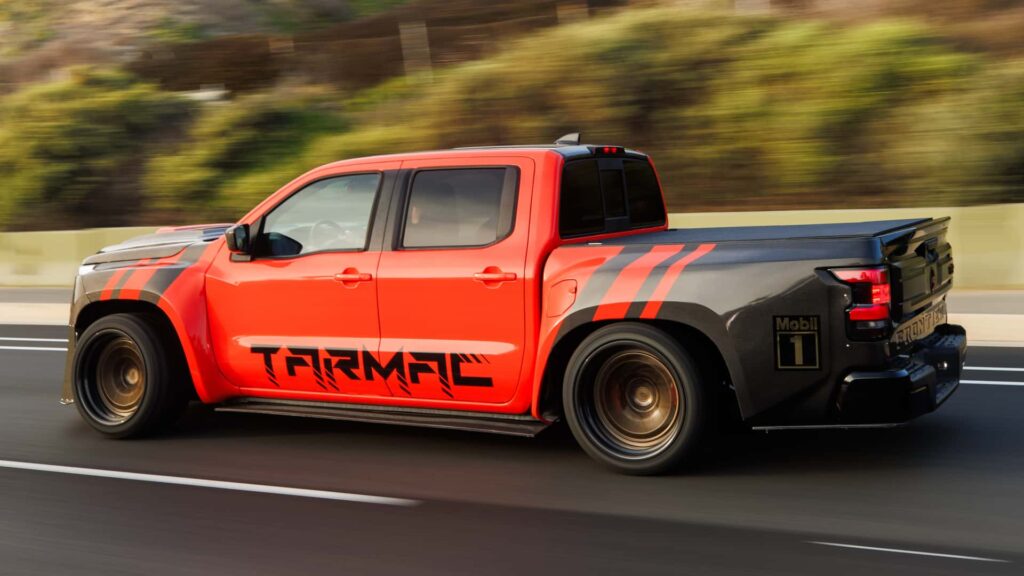
America proved again in 2024 that cars are part of the country’s social fabric. Despite the extreme polarization around electric vehicles in a historic election year, American car buyers were resilient in 2024, analysts say. Early sales estimates for 2024 are in and it’s clear that EVs and hybrids played a role in keeping the U.S. auto market robust.
Welcome back to Critical Materials, your daily round-up of news and events shaping the world of battery-powered cars. As expected, the new year begins with a flood of EV news—things are rarely slow on this front these days. Also on today’s list: Chinese export curbs on EV technology and the threat of tariffs looming large over next week’s Consumer Electronics Show (CES 2025).
30%: Fourth Quarter Boost For U.S. EV Sales
Photo by: Patrick George
Ending the Biden administration’s $7,500 tax credit on EVs was a key campaigning topic for President-elect Donald Trump. Analysts say this fear pushed EV buyers to take advantage of the credits and incentives while they last in a final year-end push.
According to Cox Automotive’s preliminary estimates cited by Bloomberg, U.S. EV sales increased 12% in the final quarter of 2024, pushing the annual total to 1.3 million units. Total auto sales are estimated to have increased to 15.9 million units, up from 15.5 million. EVs accounted for about 8% of that, marginally more from the previous year, when EVs accounted for 7.6% of all auto sales.
If true, this will be a five-year high for the overall auto market as carmakers recover to pre-pandemic levels of deliveries.
Here’s more from that report:
As for the overall new car market, lower interest rates, rising manufacturer incentives and fading anxiety around the election drew more buyers, prompting analysts to raise full-year sales forecasts. Earlier in the year, inflation and a cyberattack on car dealerships had dimmed the sales outlook for 2024.
This EV surge isn’t expected to last into 2025. The results of the US presidential election encouraged buyers holding out for deals to make purchases before policy changes championed by Trump make electric options even more expensive next year.
To be clear, these are estimates. The final numbers are expected to be out soon. But it’s not hard to believe the sense of urgency among buyers eyeing electrified models. Trump has not only threatened to repeal the consumer incentives for EVs—which would make them substantially more expensive overnight—but has also threatened tariffs on vehicles manufactured in Mexico and Canada.
As a result, Hyundai and Kia have already announced record fourth-quarter and full-year sales numbers, driven by hybrids and fully electric models. The Kia EV9 and the Hyundai Ioniq 5 particularly did well. General Motors reported selling over 114,000 EVs in the U.S. in 2024, including a whopping 42,000 in the fourth quarter alone. Ford had a record year too.
Tesla also reported record fourth-quarter sales on Thursday. However, it witnessed its first annual decline in over a decade.
Despite the threats about tariffs on vehicles made in Canada and Mexico and the likely repeal of the consumer incentives for EVs, Cox Automotive expects the auto industry to expand in 2025 by 3% rather than contract. As I said before, cars are part of the social fabric in the U.S. and EVs seem on track to find their way in regardless of policy shifts.
60%: Tariffs Will Be A Hot Topic At CES 2025
“Tariffs” was Trump’s favorite word last year, he said. That word will now haunt automakers, electronics giants and suppliers at the upcoming Consumer Electronics Show (CES 2025) in Las Vegas from January 7-10.
CES is a launchpad and technology showcase for companies, most of which rely on the global supply chain network. Now, CES 2025 attendees will want answers on whether what they’ll see at the show will be attainable or exorbitant due to Trump’s tariff plans. Those tariffs could also spell disaster for what’s already a tough transition for the auto industry away from polluting gas-powered cars.
Here’s more from Reuters on how the tariffs will be on everyone’s minds at CES 2025:
“This will be a hot topic,” said strategy consultant Deborah Weinswig, CEO of Coresight Research, who said the proposed tariffs have come up in almost every conversation she has had with clients ahead of CES. “This is going to be something that definitely senior leadership is going to have to address.”
Companies may be asked about changing suppliers and moving production to the United States to mitigate supply-chain disruptions – moves that take time and are expensive, analysts have said. Honda, for instance, sends 80% of its Mexican output to the U.S. market. It has warned it would have to think about shifting production if the United States were to impose permanent tariffs on vehicles imported from the country.
Some of the most popular EVs are made across America’s Southern border. The Ford Mustang Mach-E, Chevy Blazer EV, Chevy Equinox EV and the Honda Prologue are all assembled in Mexico. The Chrysler Pacifica Hybrid and the upcoming Dodge Charger Daytona EV are made in Canada.
Some of these models have brought electrification to the masses. And any trade war with our neighbors would reverse years of progress, worsen wealth inequality and force automakers to localize their supply chain—which could stunt growth, at least in the short term.
That’s not what the clean energy gods had in mind and definitely not what a rapidly warming planet needs.
90%: China’s Proposed Restrictions On EV Technology Exports
Experts believe the U.S. needs China’s help on the EV technology front, especially regarding cutting-edge lithium-ion batteries, to boost EV adoption. Now, the Asian giant might make that technology transfer harder.
China’s Ministry of Commerce released a notice on Thursday proposing export restrictions on lithium, a key raw material in EV batteries and gallium, a soft metal used in electronics, semiconductors and satellites. China has a stranglehold over the critical materials supply chain and it’s using that as a leverage in the ongoing trade war with the West.
Here’s more from CNN:
If approved, the new additions would form a future round of export controls imposed by China on a slew of critical materials and the technology needed to produce them, which are crucial to manufacturing semiconductors and EV batteries.
The plan was announced a month after China banned outright the sale of several materials crucial for producing semiconductors and other tech — including gallium, germanium, antimony and other “super hard” materials — to the US. That was in response to fresh export controls on US-made semiconductors imposed by the outgoing Joe Biden administration.
The proposed restrictions come at a time when U.S. automakers are seeking help from Chinese battery giants to boost local production by erecting new plants. CATL will license its technology to Ford for a battery plant in Michigan. Daimler Trucks has a deal with EVE Energy for a site in Mississippi and Gotion’s plans to erect a factory in Michigan are underway despite heavy local backlash.
100%: Which 2025 EV Launches Excite You The Most?
Photo by: Cadillac
It’s going to be another action-packed year for the EV industry, with no shortage of tensions, price wars, tariffs and exciting new electric models. We’ll see who weathers it out. I think General Motors has some momentum on its side. I’m excited to see how the Cadillac Optiq, the new entry-level premium EV positioned under the Lyriq will fare. Tesla, too, can revive some of its mojo with the Model Y update.
Which models are you looking forward to? Leave your thoughts in the comments.
Have a tip? Contact the author: suvrat.kothari@insideevs.com


